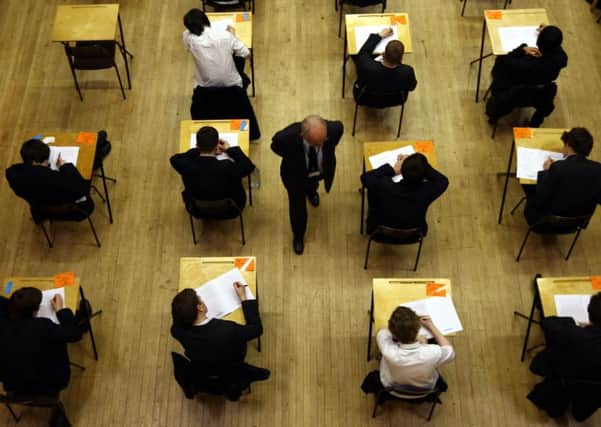Libby Nicholas: The ingredients that put great schools to the test


If the answer were simple, we would not have such large gaps between the best and worst schools. More positively though, the major changes introduced into education in recent times, giving schools much greater freedom, are starting to help shape a clearer answer to that question.
If you look at many of the schools that are doing a great job, they tend to have the same things in common. With this in mind, together with education colleagues from Yorkshire and the rest of the country, I have joined a new national campaign called Parents & Teachers for Excellence, designed to help explain what these things are.
Advertisement
Hide AdAdvertisement
Hide AdFirst, the most important thing for successful schools is they teach a curriculum that is very rich in subject knowledge. This might strike many parents as obvious – surely all schools must teach children lots of detail?
Well, sometimes only to a point. Recently schools have also focused on teaching “skills”– allowing pupils an insight into why some of them find learning difficult and why others seem to learn quickly, seemingly with no concern about being ‘correct’ or ‘failing’. This is essentially about teaching children how to learn effectively, rather than what to learn about a subject.
Of course, children benefit from knowing how to look up information. But improving their reading ability and their general understanding of a subject – and indeed the world around them – depends on the depth of their knowledge of different subjects.
As children read more about a subject, they learn new words and ideas which, in turn, help them to learn new ones and to understand how different things fit together. Knowledge is crucial.
Advertisement
Hide AdAdvertisement
Hide AdThe next most obvious point is that great schools take behaviour seriously. Again, this might sound like stating the obvious, but it is essentially the foundation on which everything else is built: it allows teachers to teach and children to learn in the first place. And we know that parents rightly believe this to be a priority.
Different schools have their own approaches, but almost all of them emphasise the need for transparent and completely consistent policies and approaches. We hear occasional stories of new headteachers turning children away at the school gates for breaching the rules on school uniform. In reality, these sorts of things are actually very rare – and when it does happen, it is usually a sure sign that the school has some quite serious behaviour problems.
Often, the best schools make it absolutely clear from the outset what is expected of children and the support they hope to receive from parents, as well as the sanctions that are in place for breaking what is, if you like, a “contract”. This means that children are more likely to start school in the right frame of mind – they know what is expected of them and how they should behave.
But it’s not just about what children are taught and instilling good behaviour, children also learn more when they are tested regularly. Quite simply, teachers need to know how well children have understood what they have been taught, and where they might still have gaps.
Advertisement
Hide AdAdvertisement
Hide AdI absolutely recognise that some parents worry about piling pressure on to their children. But handled well – as the best schools do – testing need not be something to be scared of. And the fact is, assessment prepares them for secondary school, and beyond that determines whether they go on to further study or employment.
Another key principle that excellent schools pursue is cultural enrichment – often through a longer school day. With the best will in the world, not every parent has the funds or the time to help their child learn a musical instrument or to go to the theatre. But it cannot be right that these things are only available to wealthier families. All children should have access to our country’s cultural life.
Many great schools offer time after school, as well as during the school day, to help children experience these things. And this goes to the heart of what we believe at Reach4. We have the highest of expectations when it comes to academic results, but our aspirations go well beyond the simple concept of “schooling”. Our commitment is to deliver inspiration beyond measure: helping young children develop and explore who they are and what they are capable of through arts, sports, leadership opportunities, enrichment and community.
The ingredients that make up great schools are not such a mystery, but every now and again it is worth taking a moment to remind ourselves what they are. Developing strong subject knowledge, good behaviour, regular testing and cultural enrichment all combine to make our schools great. And as educators, it is our responsibility to local families to make sure we don’t lose sight of that.
Libby Nicholas is on the Advisory Council of Parents and Teachers for Excellence (www.parentsandteachers.com) and the chief executive of the Reach4 Academy Trust.